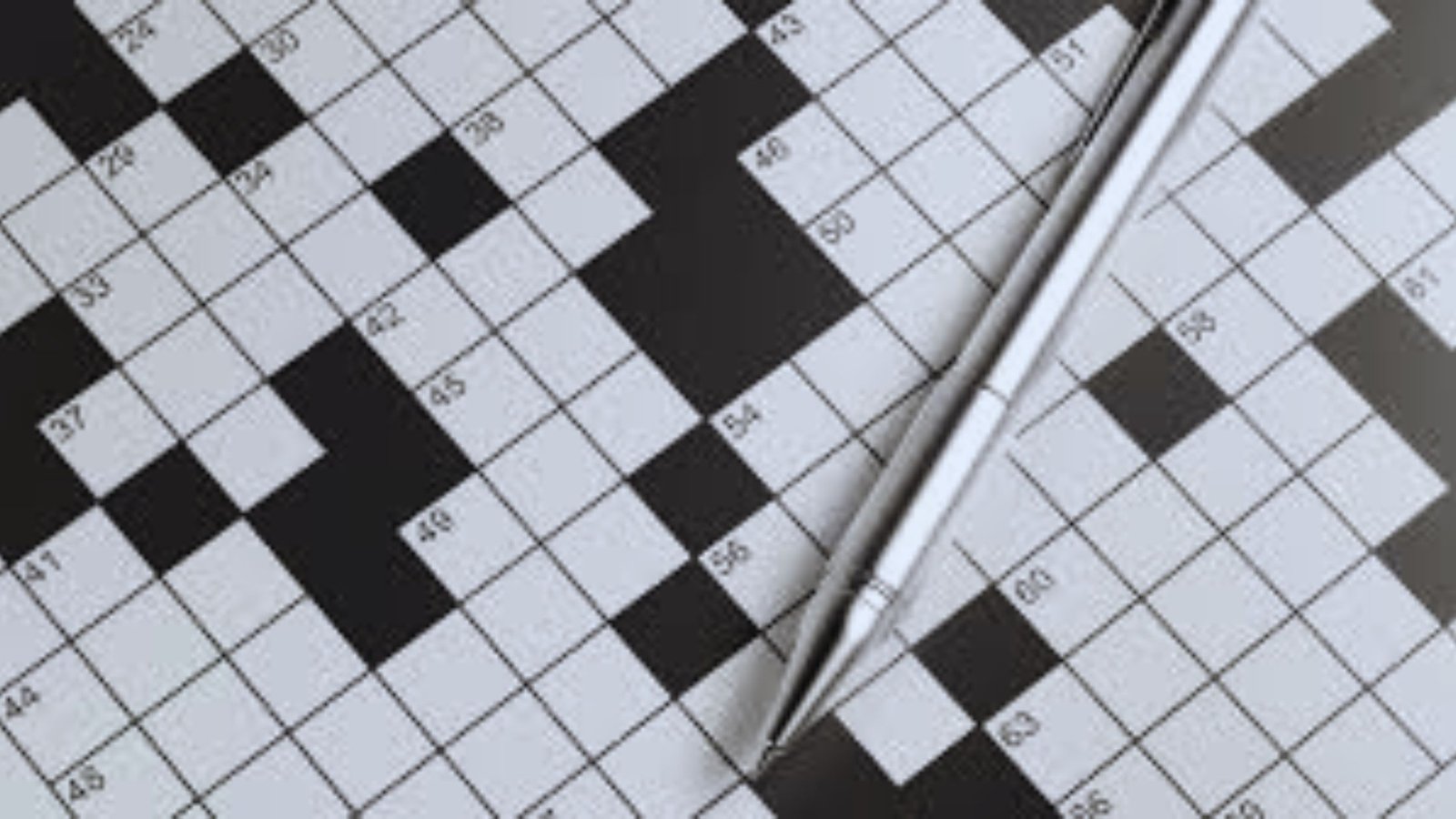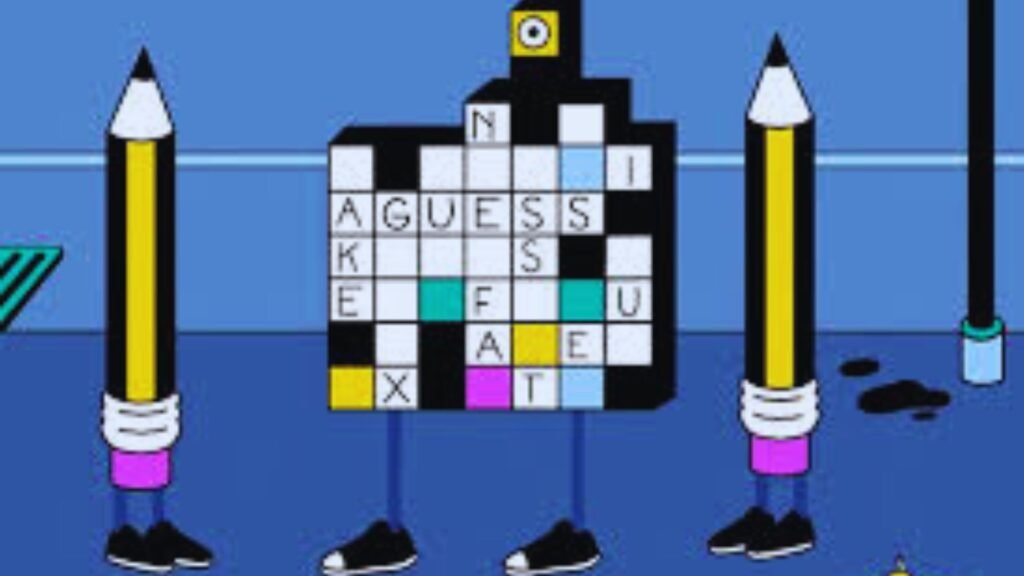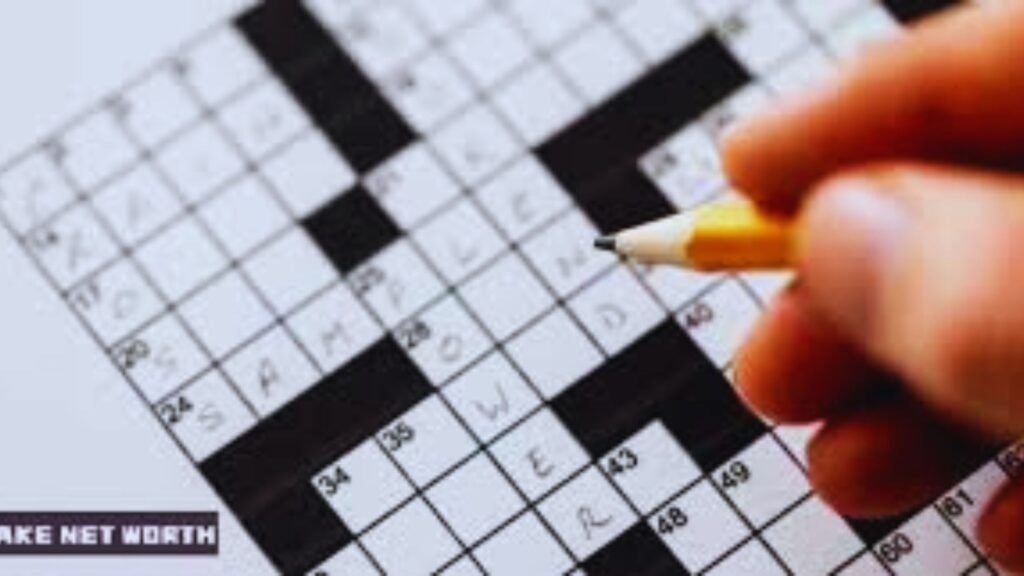Your cart is currently empty!
Response to Not Getting the Reference in the NYT Crossword

Understanding the Challenge of Crossword References
What is the New York Times (NYT) Crossword?
The New York Times Crossword is one of the most famous crosswords in the world. It is well-known for being challenging and fun. People around the world try to solve it daily. The crossword has a special structure and uses clues that can be difficult to understand. Sometimes, certain references in the clues are not immediately clear. This can be frustrating for solvers, especially for beginners.
Crossword clues often reference historical events, famous people, pop culture, or specific knowledge. Sometimes, the clue refers to something more obscure that might not be known by everyone. This is why solvers sometimes struggle to get the answer to a clue.
Why Do You Not Get the Reference?
There are many reasons why you might not understand a clue reference in the NYT Crossword. These include:
- Obscure Pop Culture: References to TV shows, movies, or celebrities that might not be in your area of interest.
- Historical Events: Clues that require knowledge of past events that you may not have learned about.
- Wordplay: The crossword often uses clever wordplay or indirect references that are tricky to understand.
- Cultural Differences: If you’re not from the United States, some references might be unfamiliar due to cultural differences.
How to Tackle Crossword References You Don’t Get
If you’re facing a clue that you don’t understand, here are some ways to handle it:
| Strategy | Explanation |
|---|---|
| Look for the Length | Check how many letters are in the answer. This gives clues to possible answers. |
| Use Crosses | Look at the answers to intersecting clues. They might help you guess the reference. |
| Use Online Tools | There are websites and apps that can help you find answers if you’re stuck. |
| Try Letter Patterns | Sometimes, even if you don’t know the reference, you can guess part of the answer based on letter patterns. |
| Stay Patient | Often, solving one clue leads to the next. Keep going and return to the tough ones later. |
Example of a Tough Clue
A classic example of a tough clue could be:
“1960s musical with the song ‘Aquarius’ (9 letters)”
You might not get the answer “Hair” immediately if you’re not familiar with the musical, but after filling in a few other answers, you might be able to deduce it.
How to Expand Your Crossword Knowledge
Crossword clues often require specialized knowledge. The more you learn, the easier it becomes to recognize references. Some tips to expand your knowledge include:
- Reading books and articles about history, culture, and science.
- Watching classic movies and TV shows from the 20th century.
- Engaging with pop culture and current events to stay updated.

Practical Strategies to Improve Your Crossword Skills
Building Your Vocabulary and Knowledge
One of the best ways to improve at solving the New York Times Crossword is by expanding your knowledge and vocabulary. The more words, phrases, and references you recognize, the easier it will be to solve difficult clues.
- Read Widely
Reading books, newspapers, and magazines broadens your knowledge. Crossword puzzles often include references from a wide variety of topics, so it’s essential to keep learning. - Learn Crossword Lingo
There are many common phrases and abbreviations used in crosswords. Understanding these terms can make it easier to interpret the clues. For example, “Abbr.” is used for abbreviations, and “Eve” might refer to New Year’s Eve. - Study Crosswords Regularly
Practice is essential to improving your crossword-solving skills. By solving crosswords regularly, you will become more familiar with common patterns and tricks used by puzzle creators.
| Action | Benefit |
|---|---|
| Read books and articles | Expands knowledge for solving various clues. |
| Learn crossword clues | Makes it easier to understand common crossword terms and abbreviations. |
| Solve crosswords daily | Helps develop a mental library of crossword clues. |
Tips for Solving Difficult Clues
There are several strategies you can apply to solve difficult clues in the NYT Crossword:
- Use the Crosses to Your Advantage
Focus on the easier clues first and use the filled-in letters from intersecting answers. This can help you guess the unknown reference, especially when combined with letter patterns. - Look for Wordplay or Puns
Many crossword clues use wordplay, puns, or indirect hints. For example, “Gets into hot water” might be a clue for “boils,” as it refers to both a literal and figurative meaning. Keep an eye out for unusual or tricky wording. - Don’t Be Afraid to Skip and Come Back
If you’re stuck, don’t waste too much time on one clue. Skip it and move on to others. Once you’ve filled in more answers, you might have an easier time solving the difficult clue later. - Use Online Tools
If you’re stuck, it’s okay to use crossword help websites or apps. These tools can give you suggestions or help you solve the clue by providing hints. While this isn’t the most satisfying way to solve a puzzle, it can help you learn new references and patterns for future puzzles.
Common Crossword References and How to Recognize Them
To improve your crossword-solving ability, you need to familiarize yourself with the most common references. Here are some examples:
- Famous People
Many crossword clues refer to well-known individuals, such as writers, scientists, politicians, and actors. Common figures include Albert Einstein, William Shakespeare, and Audrey Hepburn. - Movies and TV Shows
Crosswords often reference popular movies or TV shows. For example, “The Godfather” could appear as a clue, and the answer might be “Marlon Brando.” - Historical Events
Events like World War II, the Moon landing, and the Civil Rights Movement are often referenced in crosswords. These are common cultural touchstones, so being familiar with them will help you solve many clues.
| Reference Type | Example |
|---|---|
| Famous People | Albert Einstein, Audrey Hepburn |
| Movies and TV Shows | “The Godfather” (Marlon Brando) |
| Historical Events | World War II, Moon landing |
How to Improve Your Critical Thinking
Crossword puzzles require critical thinking and pattern recognition. As you continue solving puzzles, try to pay attention to how clues are structured. This can give you insights into how to approach a tricky clue.
- Break down complex clues: Some clues seem long or complicated. Break them down into smaller parts and focus on keywords. For example, “Short fiction by Poe” can lead to “story,” which helps fill out the answer.
- Think about synonyms: Many clues are just asking for a synonym or related word. If the clue says “Great dancer,” the answer might be “Ballet,” since ballet dancers are known for their grace.

Handling Frustration and Staying Motivated
Dealing with Frustration
It’s normal to feel frustrated when you can’t solve a crossword clue. Sometimes, despite your best efforts, you might get stuck for a long time. The New York Times Crossword, especially on harder days, can feel like an impossible challenge.
Here are a few ways to manage frustration:
- Take Breaks
If you’ve been staring at a tough puzzle for too long, step away for a while. Taking a break allows your brain to rest and can often help you come back with a fresh perspective. After a break, you might be able to see the solution you missed earlier. - Don’t Be Afraid to Ask for Help
Sometimes it’s okay to look for help. Use online crossword solvers or crossword forums where experienced solvers share tips. Asking others for hints can help you learn new strategies and prevent burnout. - Change Your Mindset
Try to see the puzzle as an enjoyable challenge rather than something you have to finish quickly. Remember that crossword puzzles are designed to be fun. Even if you can’t get the clue right away, you’re still exercising your mind and learning new things. - Celebrate Small Wins
It’s important to recognize progress, even if you haven’t completed the entire puzzle. Every clue you solve brings you closer to the answer. Celebrate the small victories, like filling in a tough word or figuring out a challenging reference.
| Solution | Benefit |
|---|---|
| Take breaks | Reduces frustration and refreshes your mind. |
| Ask for help | Learn from others’ expertise and avoid burnout. |
| Change your mindset | Helps stay positive and focused on solving. |
| Celebrate small wins | Builds confidence and motivation. |
Staying Motivated
Motivation is key to improving your crossword-solving skills. Here are a few tips to stay motivated:
- Set Realistic Goals
Start with smaller, achievable goals. For example, set a target of solving one NYT crossword a week or mastering a specific category of clues (like geography or history). As you accomplish these goals, your motivation will grow. - Track Your Progress
Keep track of the crosswords you solve. You could note down which days you completed them or how long it took. This will show your improvement over time and give you a sense of accomplishment. - Join Crossword Communities
Many crossword enthusiasts share their progress online. Joining a crossword-solving community can motivate you to keep going. You can exchange tips, solve puzzles together, or participate in friendly competitions. - Try Different Difficulty Levels
If you find the NYT crossword too difficult, try solving easier puzzles first. Once you feel comfortable with simpler puzzles, challenge yourself with more difficult ones. This gradual approach helps build confidence.
How to Stay Engaged with the NYT Crossword
- Solve the Puzzle with a Friend
Sometimes solving the puzzle with a friend or family member makes it more fun. You can share ideas and figure out clues together. Working in teams can bring new perspectives and make the process more enjoyable. - Solve at Your Own Pace
You don’t need to finish the crossword in one sitting. Take your time and return to it when you feel ready. This approach helps reduce stress and makes solving more fun. - Track Your Streak
The NYT crossword rewards users for consistent solving. Tracking your streak will motivate you to solve puzzles every day, even when the clues are tough.
| Motivation Tip | Explanation |
|---|---|
| Set realistic goals | Helps build confidence and keeps you on track. |
| Track progress | Shows improvement and boosts motivation. |
| Join crossword communities | Engages with others and makes solving more fun. |
| Try different difficulty levels | Gradual challenges help improve skills. |
Advanced Strategies and Resources for Expert Solvers
Developing Advanced Crossword Skills
As you become more experienced in solving the NYT Crossword, you will encounter more difficult puzzles. These puzzles often require advanced strategies to solve efficiently. Here are some tips for expert solvers to improve their crossword-solving skills:
- Master Word Patterns
Recognizing common letter combinations can help you guess answers. For example, many answers end with “ER,” “ING,” or “EST.” These patterns can give you clues about the correct answer, even if you’re unsure of the reference. Becoming familiar with these word patterns makes it easier to fill in the blanks. - Learn Common Crossword Themes
Crosswords often use specific themes, such as homophones (words that sound the same), puns, or hidden meanings. Learning to recognize these themes can significantly improve your speed and accuracy when solving puzzles. Some puzzles even feature hidden answers, so pay close attention to subtle clues in the wording. - Practice Using the “One-Letter Method”
When faced with a particularly difficult clue, try filling in just one letter in the answer. This can sometimes unlock the entire answer, as the intersecting words can help guide you to the right conclusion. Even a single letter can give you valuable information that makes the rest of the puzzle easier to solve. - Increase Your Mental Flexibility
Advanced crossword puzzles often require a flexible approach. For instance, a clue like “A cold one” could refer to anything from “beer” to “snow” or “ice.” Being open to different interpretations and thinking outside the box will allow you to solve more challenging clues.
Helpful Tools for Experienced Solvers
Even expert crossword solvers can benefit from some additional resources. Here are some tools that can enhance your crossword-solving experience:
- Crossword Solver Websites
Websites like XWord Info, Crossword Nexus, and OneLook are excellent tools for helping solve tricky clues. These resources provide access to vast databases of crossword answers and synonyms, making it easier to find the correct solution when you’re stuck. - Puzzle Apps
Many crossword apps, including the NYT Crossword app, offer interactive features like hints or answers. Some apps even include a “check” button that lets you confirm if the answers you’ve filled in are correct. While these features can be helpful, remember that the goal is to solve the puzzle on your own. - Crossword Dictionaries
A crossword dictionary can be a helpful resource for finding words that fit specific letter combinations. These dictionaries often include synonyms and unusual words that may not be found in regular dictionaries, making them invaluable for expert solvers. - Join Crossword Clubs
Many solvers find it helpful to join a crossword club, where they can discuss strategies and share tips with others. These communities can be a great source of motivation, as you learn from others who have solved more puzzles or are facing the same challenges as you.
| Tool/Strategy | Explanation |
|---|---|
| Master word patterns | Recognizing common endings or prefixes speeds up solving. |
| Learn crossword themes | Helps in recognizing the structure of clues. |
| Use the “One-Letter Method” | Filling in one letter can unlock the entire answer. |
| Increase mental flexibility | Allows you to interpret clues from different angles. |
Conclusion and FAQs
Conclusion
Solving the New York Times Crossword can be a rewarding and educational activity, but it is not without its challenges. Whether you are a beginner or an experienced solver, there are strategies and techniques that can help you improve. Start by understanding the clues, practicing regularly, and gradually increasing your knowledge and vocabulary. As you encounter tough references, use the tips outlined in this article to stay patient and motivated.
The journey to solving the NYT Crossword is a process of continual learning and mental exercise. The more you engage with the puzzle, the easier it becomes to spot patterns, recognize references, and solve difficult clues. And remember, every time you finish a puzzle, you’re improving your critical thinking and expanding your knowledge.
FAQs
Q: How can I improve my crossword-solving skills?
A: To improve your skills, practice solving crosswords regularly, expand your knowledge by reading widely, and learn common crossword themes and abbreviations.
Q: What should I do if I can’t solve a clue?
A: If you can’t solve a clue, use the crosses (intersecting answers) to help you. Take a break and come back later with a fresh mind. You can also use online tools to get hints or suggestions.
Q: How can I deal with frustration when solving a crossword?
A: Take breaks, change your mindset, and celebrate small wins. Try not to get discouraged by one difficult clue.
Q: Are crossword solver tools cheating?
A: Using solver tools is not cheating if used to help learn and practice. The goal is to improve your skills, not just get the answer.
Q: How do I handle crossword references I don’t understand?
A: If you don’t understand a reference, use your knowledge of crosswords to make educated guesses based on the length of the answer and letter patterns. Keep learning about different topics to increase your knowledge for future puzzles.
Leave a Reply